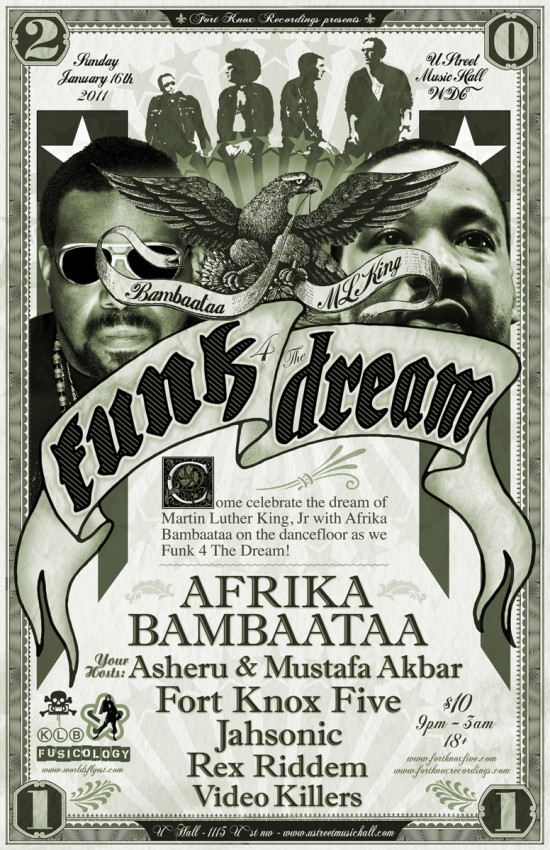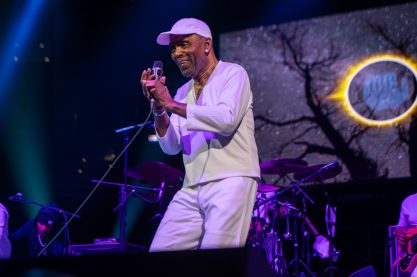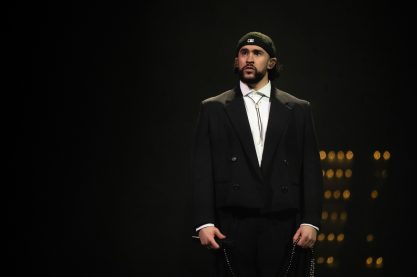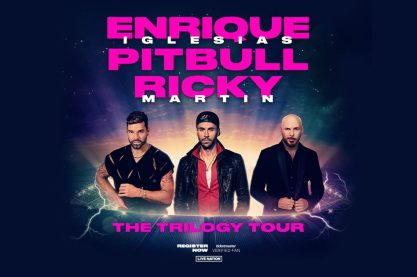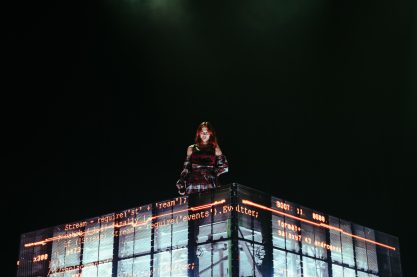Music
Interview: Afrika Bambaataa
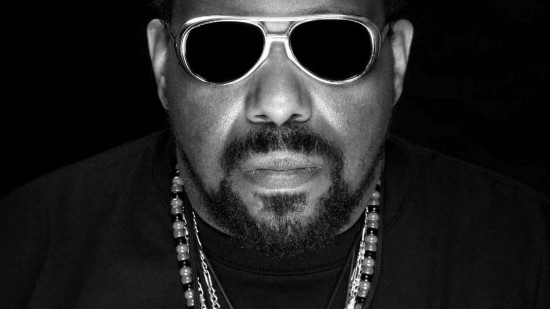
There are few people that can say if they didn’t exist, that hip hop might not exist. And Afrika Bambaataa is one of those people. Known as the godfather of hip hop, Bam is as much a cornerstone of hip hop as the four elements (really five) are. With a resume boasting such accomplishments like organizing the first European hip hop tour, recording one of the most important songs in hip hop, “Planet Rock” and forming the most powerful organization in hip hop, the Universal Zulu Nation there’s no question that Bam is hip hop. I had the pleasure of chopping it up with Bam about everything from how he feels about present day hip hop and program directors taking payola to how he squashed the beef with Q Tip and Wreckx n Effect and what his relationship is like with the other two heads on hip hop’s Mt. Rushmore.
Can you paint a picture for us what hip hop looked like in its beginning stages in the 70’s?
Well, hip hop being born in the 70's was the excitement coming from the soul and funk and reggae and soca that was happening at the time. And leaning onto what was before us and many people who were just hearing the sound for the first time and coming out in the 100's and later on in the 1,000's to enjoy this type of music. Seeing the first DJ scratch. Seeing MC's rhyming and the dance. Seeing many of the b-boys and the b-girls doing their style of dancing that caused excitement on the floor. Seeing people coming out of the disco era doing the hustle but now doing the hustle to a funky break beat to the type of records that made them do different styles whether it was coming back from the past to adding their own flavor. Or some doing Latin moves to the dance of the hustle or even to break dancing. It was an interesting time. Also, the problems of trying to have good equipment and fights breaking out and certain times of bringing in peace.
You were the warlord of one of New York City’s biggest gangs the Black Spades, and then you formed the Bronx River Organization to promote peace. How did that change go over with the Black Spades?
When I moved things to the organization and then from the organization to the Zulu Nation a lot of the groups came with me. And then we started adding what we call the infinity lessons. Which is knowledge of anything that's everything and everything that's anything to try to bring discipline and order to people who at one time didn't wanna hear anything about being disciplined. Or some might be religious so we had to add a little flavor of all the different religions and showing everyone that you can respect each other's stuff under this whole banner of the universal Zulu Nation. Holding all of the elements together and forming this whole culture hip hop. But at that time we didn't have a name for it.
So were any of the Black Spades like, "Bam is buggin’, why are we going from being a gang, to now we’re gonna be peaceful?"
You had some that definitely went their own route and made their own groups and left or whatever. But you had others who also came. And it wasn't all peaceful in the beginning either. It took a lot of time and work and speaking and teaching and showing some who might consider using the n-word or the b-word and trying to get you to know that you are gods and goddess. Going back and giving certain sisters and brothers African names and as we started moving towards on a world level, then dealing with a whole world of different people, cultures and nationalities.
Planet Rock is one of the dopest and most iconic hip hop songs ever, can you take me through the process of how that song came about and what the studio session was like?
Well, that song was made because I was heavy into the techno pop of Kraftwerk and Yellow Magic Orchestra and Gary Numan as well as the Halloween movie by John Carpenter and Dick Hyman and the electro we were doing with Sly and the Family Stone when he was using the talk box before anybody. And Larry Grahm and Stevie Wonder and all that. So what I tried to do was to take the soul and funk of James, Sly and Uncle George Clinton and put it to the tempo of Yellow Magic Orchestra, Kraftwerk and Gary Numan and gave birth to the electro funk sound. The four records were "Numbers" by Kraftwerk, "Trans Europe Express" by Kraftwerk, "The Mexican" by Babe Ruth and "Super Sperm" by Captain Sky.
You, Kool Herc and Grandmaster Flash are looked at as the Mt Rushmore of hip hop, what was your relationship like with them in the 70's and has it changed through the years?
Our relationship back in the day was that we all knew each other and had the respect of each other but we all were out there trying to our audience to love our side of the music and we were going down to make it happen. And our relationship today is that we're pretty cool with each other. We come together when we have our anniversary of hip hop culture.
In '82 you organized the first hip hop tour outside of the US. What was that experience like? And how were people oversees receptive to hip hop?
It was many who didn't understand it and there were many who were accepting it because they wanted to see what all this hype was about with this new culture called hip hop. It was people who when we first went to places like France and Europe, they didn't know what we were doing like “why are they making sounds with the records?” And you had to get people to get down and dance and then they start getting the vibrations and start singing the Double Dutch and the b-boys and b-girls and seeing people doing the graff and art and the DJ's and MC's. It was something that had to be worked on as we went from town to town and city to city, nation to nation from playing at cafes to little centers to big halls, back down to little centers and back down to the little cafes. It was a lot of work to do and it eventually paid off and now we have different hip hop stars in almost every corner of the earth that's rappin’ their own language and their own music and adding that funky break beat.
It seems like when hip hop was first born in the 70's, the culture was praised for helping to stop a lot of violence in the black community, but now 30 years later hip hop is blamed for a lot of the violence in the black community. How do you feel about that?
Well, that's because a luciferian conspiracy snuck into hip hop. There are little secret societies that watch everything and what everybody does and they try to infiltrate it whether it’s with money, fashion or with mind control. Some of these rappers who when they started doing gangster rap never wondered why this was pushed so much as the next big wave? Why were all the radio stations program directors told to be playing this style of music? And what happened to you being a program director and playing all categories of music? Or are you taking payola under the table and being told by certain people to stay with this one style of music? And that's why we started challenging many of these stations especially when I went to do interviews and people are talking about "I'm hip hop” or “I'm hip hop and R&B” but if you're hip hop and playing the music, where's your Go Go music? Where's your Miami bass and electro funk? Where's your trip hop? Where's the hip house? Then you're not hip hop if you're just playing what you're told to play and you just go along with the program of just keeping everything gangster and you're not playing all the categories of hip hop that's out there especially the international flavor of hip hop. They're under the control of whatever is programming the minds of the masses and what people are putting out there for the people to hear.
You were very instrumental in squashing the beef when Wreckz n Effect jumped Q Tip behind the line that Phife said in “Jazz (We’ve Got)”….“strictly hardcore tracks, not a new jack swing”, how did you go about bringing both crews together to talk things out?
Speaking to a lot of the brothers and sisters who had problems behind closed doors and that's how mostly we did that. Those are the ones that just slipped out and became more public. But there were many that we did behind closed doors and there were many times that we had to go from the east coast to the west coast even when we had the big problem between so called blacks and so called Mexicans not understanding who they and to stop the violence of killing each other over there and in many different other communities, in other places and in other countries. It's like a learning process. You've got to teach who you were and what were you called before 1492 and what is your mission today.
From that answer, it seems like you were instrumental is squashing a lot of beefs in hip hop that many of us will never know about. Do you think promoting peace and being a peacemaker is your calling?
Since understanding and coming from a gang culture and seeing many leaders who came from gang culture that have turned around and are some of the most dynamic speakers and thinkers of today that we have in our community and many other places, I just rode along the line of the heritage of people who came before me. I saw the negativity of destroying each other because you’ve got on a pair of $100 sneakers or you looked at the girl the wrong way. Or you getting something that you’re spending all this crazy money on because you think its name brand and many don’t know that certain things are being made off the backs of other people that are getting cheap labor money. It’s a teaching technique that you have to teach many of the youth and young adults out there in the streets that many may not have taken the time to think about. Or how you got this or how your mamma and poppa had to struggle to get this and that.
How does it feel seeing the Zulu Nation is just as relevant today as it was 30 years ago?
I thank the creator that it’s still going and many other people have stepped to the plate to keep it moving. It’s had its ups and downs like any other group or organization. And that many who still keep it to heart to try to keep it to what’s going on and to see what’s happening around them and try to get up and do something about the situation that many of us are in. That’s a good feeling in itself and now we’re trying to get strong on economics because we had enough time being an international hip hop awareness movement and just hip hop, hip hop, hip hop and now it’s time to get on nation building as a government within governments.
Who are 5 of your favorite MC's? (In no particular order)
I gotta give it up to Ice Cube, Grandmaster Melle Mel, KRS One, Chuck D, Kool Moe Dee. And, also to the ladies, Queen Latifah, MC Lyte, Salt ‘n’ Pepa, Lauryn Hill.
What are 5 of your favorite albums to listen to?
First I gotta give it up to James Brown’s Live at the Apollo Volume 3 cause of the excitement of the people that are on that album called “Revolution of the Mind”. Second I gotta give it up to Sly and the Family Stone, the “Stand” album. I mean, stand is the biggest thing you can ever do in life, is to stand for something. Marvin Gaye’s “What’s Going On” album it’s so much spirituality behind that album. “It Takes A Nation of Millions To Hold Us Back” with Public Enemy, the power that was put into that album. I gotta give it to a lot of the rock stuff by the Rolling Stones and certain Beatles records, there was power in the rock field of music.
What’s going on right now in 2011 with Afrika Bambaataa?
I’m still recording. I had something that went straight to itunes if anybody wants my music. I got a remake of James Brown “You Don’t Work You Can’t Eat” which is on itunes. We got another song with Africa Islam under the name Charlie Funk that James Mtume did called “It’s My Funk”. A record with Fort Knox that’s called “Shift” which the video is on youtube and the video that’s fan based for “If You Don’t Work You Can’t Eat” is on youtube. And I’m also still in the streets, we just feed 300 people for Kwanzaa and Christmas and Hanukkah with the homeless in the streets. We also wake a lot of people up to the science and letting our people know, black people and when I say so called black people I mean the Latinos and all of them too, that you are the business of this country and don’t collapse thinking you came here as slaves, you already been here and you need to know what you were called before 1492 cause you weren’t called all of these black, brown, yellow, red and white. What is your birthright and what is your nationality?
Afrika Bambaataa will be headlining the Funk 4 The Dream this Sunday at U Street Music Hall in DC:
